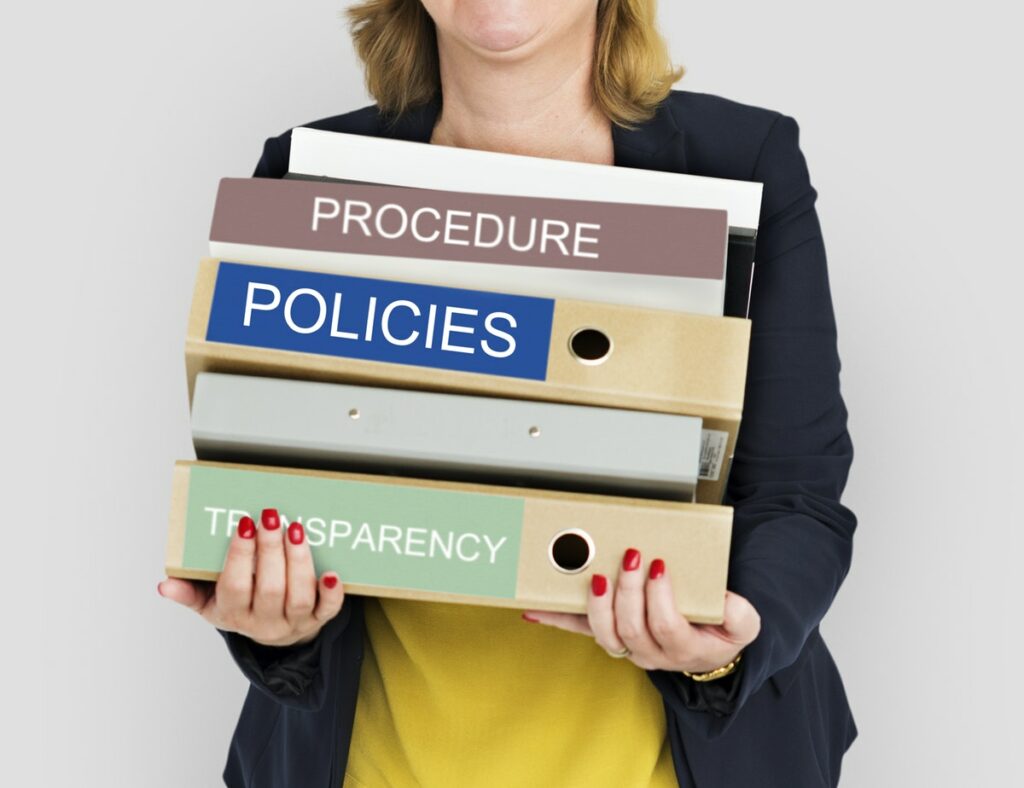Is the employer responsible for burnout? You see an employee increasingly burdened with his or her daily duties. You occasionally ask yourself if this is ok. Is it perhaps a good idea not to work late tonight?
The answer is quite short. The bottom line is that, it all works out well and that he or she takes time off when this project is completed.
In itself, a good institution, which you as an employer are quite happy with. But on the other hand, you also see the high work pressure that is on the shoulders of your employees.
The stress level rises very high at certain moments. Deadlines and a lack of staff create extra tensions in the workplace. At some point the inevitable phone call comes, your employee is off work sick. Not just sick, he or she is at home with a burnout. Which is likely to be a long term absence.
To what extent are you as an employer responsible for burnout among your employees?
Take responsibility as an employer
In addition to his many other duties, an employer also has responsibility for the well-being of his employees. This also includes stress prevention. How does the company deal with stress prevention? Is something being done about it or is there a taboo, so that it is not negotiable.
Stress and burnout are becoming more common. We can no longer ignore it. If an employee ends up at home with a burnout, that costs a company a lot of money. It is therefore important that a manager is aware of his role in this. Because you can do a lot to reduce the stress level among employees so that it does not lead to burnout.
Because burnout is so common, it is becoming increasingly clear what causes the complaints. What triggers there may be and how complaints can be prevented. By helping your employees with this you can prevent them from getting burned out.
Also read: recognize employee with stress
Collect the first signals
As a supervisor, you spend a lot of time with your employees. More time than they spend at home. So you have every chance to pick up the first signs of an impending burnout or stress-related complaints.
As soon as you pick up the first signals, it is important to do something with it. Your employees often do not yet realize how far they are in this process. Sometimes there are simple things that you notice indicating something has changed.
An employee who is always very punctual suddenly forgets an appointment. That always-accommodating employee suddenly turns out to be a colleague. Learn to recognize the stress signals and take action as soon as you see them.
Some signs that may indicate too much stress:
• Forgetfulness
• Fatigue
• Irritable
• Making more mistakes than normal
• Conflicts in the workplace
Also read: recognize burnout

Where do you place the responsibility for a burnout?
Who is ultimately responsible for a burnout? That is a difficult question. As a manager, you can do a lot to reduce the workload. But it is also partly up to your employees. Over-responsible employees will suffer from excessive work pressure sooner than those who don’t feel over-responsible. Just like people who are very perfectionist.
We are stimulated all day at the office. The telephone rings, e-mails arrive, a colleague asks something and you also have to concentrate on your work. But these incentives do not have to be the only reason that an employee suffers burnout.
In addition to work, your employees also have all kinds of obligations. Perhaps they have relationship problems, they have to cope with a loss, are their problems with the children or are they financially uncomfortable. All these things cause stress.
Nowadays it is normal to always be ‘on’. We must always be available. Emails and WhatsApp must be answered immediately and then we must also be aware of everything via news apps and social media. This brings enormous pressure.
Where then is the responsibility for a burnout? Is the employee questioned at work or does it play more?
Become aware of stress in the workplace
Mental stress in the workplace has a major impact on sick leave. As soon as you are aware of this, you can respond well as an employer. As long as your employees feel that they have control over the situation, the workload will not be a problem.
A certain amount of workload is needed to complete assignments and projects on time. As long as a stressful period is followed by a quiet period, there will be enough time for employees to refuel.
The bow cannot always be tense. Make sure your employees are well aware of this. Give space for relaxation in its time and make sure that employees who easily continue to work take their work breaks on time.
Read for this: let employees relax

Everyone responsible for burnout
As mentioned, it is not always the workload that causes an employee with burnout to sit at home. It may as well be caused by other factors. Then the high workload can be the proverbial ‘last drop’.
We always like to blame others or external factors. It is easy to shift the responsibility so that we do not have to do anything ourselves. This does not work within an organization.
Everyone contributes to the business. This also applies to create a pleasant working environment. If everyone feels responsible for each other, this will improve productivity and work pressure.
As a supervisor, you not only supervise the work of your employees, but you also deal with tackling and recognizing the various stress signals.
Also read: development points for employees
Make stress prevention part of the policy
Stress prevention should be an important issue on the next meeting agenda. Because within many organizations there is a policy that sick employees get back to the workplace as quickly as possible. But the cause of the sickness absence is not looked into.
There is a lot to be gained here. Because if an employee does not go sick, it can save a lot of time and money. Good stress prevention helps you keep employees fit and healthy. You absorb stress signals at an early stage so that you can take action on time.
How is that arranged within your organization? Is a form of stress prevention included in the policy, or is attention not given to this? A missed opportunity that will bring a lot of profit to both the organization and your employees.
Also read: learning goals for managers

Take responsibility and make stress negotiable
Is there a ‘not nagging, but working on’ mentality within your organization? Sooner or later this will cause problems. Employees can work at high speed for a while, but it can not be maintained 24/7. As soon as your employees notice that it is no longer possible, they will want to ring the time out bell. Is there room for that?
Make stress in the workplace negotiable. Employees who experience complaints due to excessive work pressure are not weak. They have been strong for too long. It is precisely by making this open to discussion that you help employees to maintain their productivity.
A good stress prevention policy also means that there is a point of contact for employees to be able to tell their story. Often that relieves so much that they can move forward for a while. If the workload is structurally too high, action can be taken on time so that you do not lose an employee to a burnout.
As a manager, you can be approachable to your employees yourself, but you can also put someone from the HR on it. Regardless of how it is arranged, make sure that you remain involved. It is the intention that you ensure that something is done with the complaints that are made.
Read also:
Address overburdened employees
Not everyone will find it easy to find out that they cannot handle the workload. Do you see that an employee is overburdened, but he does not come up with it himself? Then talk to him or her about it. Do this in private. Ask what they are finding difficult at the moment and how it could be better. Paying attention to your employee does them well. Just thinking along about a solution makes the problem less serious.
Addressing an overloaded employee is not always easy. Certainly, if an employee is already heading towards a burnout, many emotions are involved. That is not easy for you as a manager. Fortunately, you can learn how to enter into a conversation with overburdened employees.
Also read here: addressing an employee for work stress
Can we help you?
Leave us your information and one of our coaches will contact you in 24H

You are responsible for the workload
In addition to all external factors that arise in the workplace, such as a difficult customer on the telephone, you are responsible for the workload as a supervisor. After all, you hand out the work. Do you divide all the work evenly between all employees and thereby give them more work than they can handle? Or do you shift certain jobs to specific employees, because they always finish their work so well and quickly?
Of course, it is good to use the strengths of your employees. Use their talent, that will make your employees happy and the productivity will increase. But you can easily question your employees. Do you know how much they can handle?
The best way to find out is by simply asking. How do your employees experience the workload in practice? Can they handle it or is it too much? Do they get the time to finish their work or do they sometimes have to work overtime in order to complete the work set?
This valuable information enables you to better align the division of work with your employees. This will reduce the workload, which benefits the health of your employees.
Also, read:
- from goal-oriented to process-oriented work
- Internal Mobility: How to Increase Work Pleasure and Lowering Absence?
Reduce stress to prevent burnout
Preventing burnout is easier than a cure. An employee who has once had a burnout will develop one more quickly. The best way to find out the stress factors in the workplace is to ask your employees themselves. Map it and see how it can be tackled together.
Are there already employees who experience stress complaints? Then take action immediately before these symptoms develop into health problems. Call in an expert who can help with the development of good prevention policy. As a result, long-term sick leave due to stress is prevented.
Also read: stress prevention
Express your responsibility by facilitating training courses for reducing absenteeism
Who takes responsibility for a burnout?
Someone who ends up with a burnout at home may be happy to appoint a person responsible for what has happened to him or her. In practice, it is important to prevent these people from going home at all.
Because good stress prevention benefits everyone.
Then there are no losers, only winners!
So let’s all take our responsibility to prevent burnout. As a supervisor, you ensure a healthy working environment, where happiness is paramount. You ensure that the tasks are well distributed among the employees and pay attention to their talents.
On the other hand, your employees monitor their limits and indicate on time if the workload becomes too high. Then a solution can be sought together before the excessive workload can cause physical complaints or even burnout.
Also read: the role of HR in absenteeism
Take responsibility for preventing a burnout
Preventing a burnout becomes difficult if your employee does not state what is going on. You can then wrongly think that everything is going well. Until the moment that your employee collapses and goes home.
You would have liked to have avoided that moment. But how do you do that? How can you, as an employer, take your responsibility in preventing a burnout?
First, it is important to learn to recognize the signals, no matter how small. With that, you can already absorb a large part. If you also learn how to address an overburdened employee in the right way, you can also help these people before they are completely burned out.
And if you were unable to prevent your employee from getting burned out, we would be happy to teach you how to deal with people who are burned out at home in a good way. Because even when your employee is at home, it is important to maintain contact. Precisely by showing your involvement during this process, your employee will appreciate that. He or she will continue to feel important and involved with the company, which will speed up recovery.
Additional articles to benefit from;
- Reintegration of an Employee After Burnout. How?
- How well do your employees indicate their boundaries? You help them this way

Stress & burnout coaching; for 100% recovery!
Reducing stress and recovering from burnout is simply incredibly difficult. The coaches at Meulenberg Training & Coaching understand exactly what you are going through and know how tough it can be. They have often experienced it themselves! With their years of experience and expertise, they are ready to help you step by step toward a full recovery. The results of our one-on-one coaching and absenteeism training will benefit you for a lifetime!






